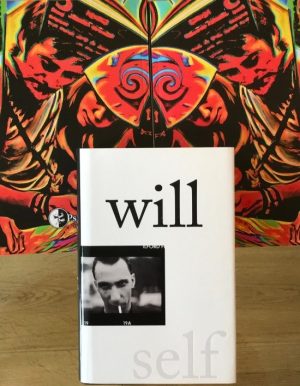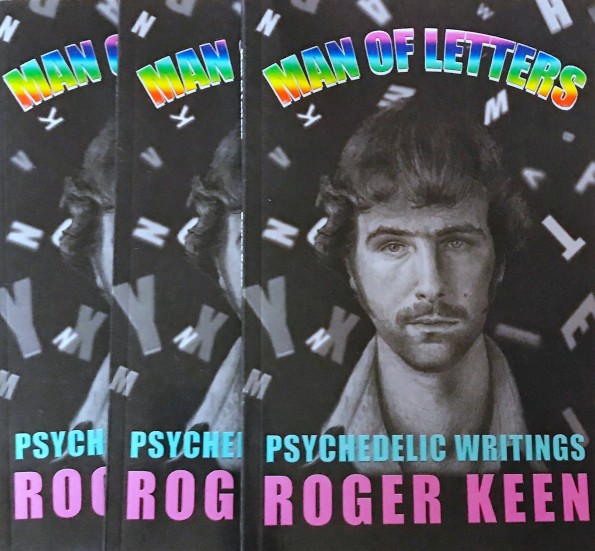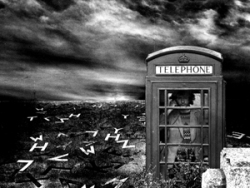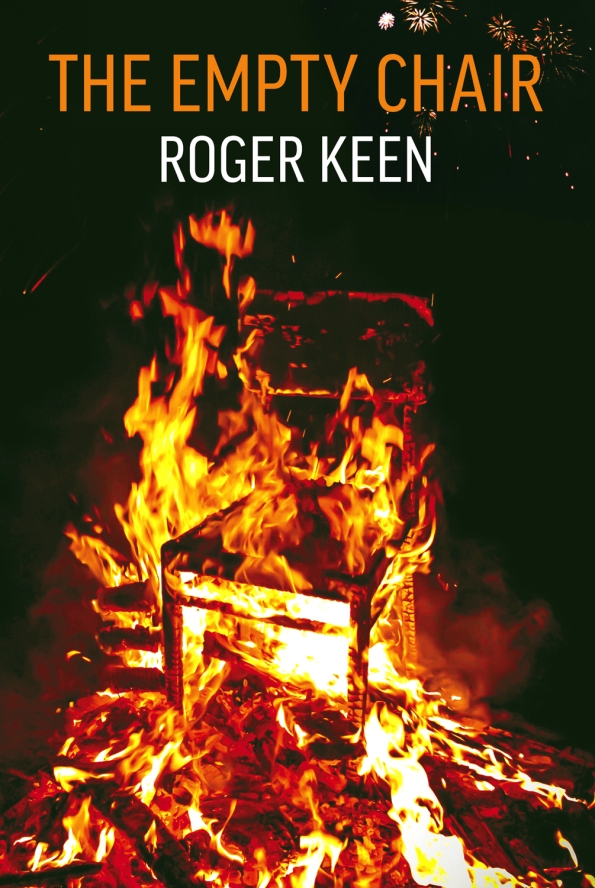Archive
LSD, Smiles and the Madness of Operation Julie
The story of ‘Operation Julie and the Microdot Gang’ has become part of hippy folklore, a ‘cops ’n’ outlaws’ clash to rival the Sheriff of Nottingham and Robin Hood’s Merry Men, or Joe Lefors and Butch Cassidy’s Wild Bunch. Many books have been written about it from the perspective of both sides of the law – from Inspector Dick Lee’s account to Leaf Fielding’s.
Now In Search of Smiles, a new biography of Alston Hughes, a key figure in the Microdot Gang (written by LSD historian Andy Roberts), has been published by Psychedelic Press. Here is my extended feature on the book and the Operation Julie phenomenon:
The term ‘Operation Julie’ is indelibly branded on the minds of anyone who knows anything about British counterculture in the 1970s. One of the biggest anti-drugs initiatives ever, it was tabloid heaven, with the bust itself, in March 1977, becoming the top news story of the day, its ramifications going far and deep.
In the public mind, drug busts were directed against familiar hard drugs such as heroin and cocaine, and increasingly cannabis, the smuggling and distribution of which had increased exponentially over the past decade. What made Operation Julie newsworthy was the target drug, LSD, at the time an exotic and much-feared substance; known to have inspired the Beatles and Pink Floyd, but also to have driven people crazy.
Therefore, the dynamics of Operation Julie were qualitatively different. The story wasn’t about a straightforward ‘good cops versus evil pushers in it for the money’, it was about ideology and the politics of personal experience, about LSD’s effect on society, and controlling the impressionable. LSD proponents, people who’d experienced the drug in significant doses, and who had undergone its transcendental, transformative effects, saw it as a catalyst to change the world for the better, a shortcut to ‘the meaning of life’, which, if it were to spread exponentially throughout the populace, would effect desirable societal change, one brain at a time…
Read more on Psychedelic Press Substack
Man of Letters: Psychedelic Writings
Out Now: A collection of fourteen psychedelic-themed essays, several of which have appeared in Psychedelic Press, The Oak Tree Review and Reality Sandwich, covering countercultural history, avant-garde and psychedelic cinema, and the psychology of altered states. They touch on figures such as Thomas DeQuincey, Charles Baudelaire and William Burroughs; and in the field of cinema, directors including Ken Russell, Roger Corman, David Cronenberg, Terry Gilliam and Ben Wheatley are explored.
The essays revisit the ‘Alphabet Wood’ hallucination of the Plym Woods in 1975, the mushroom-inspired ‘Cult of the Novel’ messianic quest to turn the world on to ‘reality fiction’, and contain updates to the ‘trippy movie’ coverage, including 2022 films Avatar: The Way of Water and Doctor Strange in the Multiverse of Madness.
The alphabetic cover comes with its own story, dating back to my ‘Strange Days’ of the mid-1970s in Bournemouth, and stretching into the realms of contemporary horror and fantasy cover design. Read the full story on Medium: A Tale of Two Covers
Further details regarding Man of Letters, and purchase links can be found here: DV Publishing
Will Self and the Drug Memoir
 My article “Will Self and the Drug Memoir” is now available in the new Psychedelic Press journal XXXVII, and an extract is also out on their Substack. The piece focuses on Will Self’s memoir Will – which details his drug use from age seventeen to twenty-five, taking in his years as an Oxford student and concluding with his rehab in Weston-super-Mare – setting this against a brief history of the drug memoir genre and featuring the key works of Thomas De Quincey, Charles Baudelaire, Fitz Hugh Ludlow, Aleister Crowley, William Burroughs and others.
My article “Will Self and the Drug Memoir” is now available in the new Psychedelic Press journal XXXVII, and an extract is also out on their Substack. The piece focuses on Will Self’s memoir Will – which details his drug use from age seventeen to twenty-five, taking in his years as an Oxford student and concluding with his rehab in Weston-super-Mare – setting this against a brief history of the drug memoir genre and featuring the key works of Thomas De Quincey, Charles Baudelaire, Fitz Hugh Ludlow, Aleister Crowley, William Burroughs and others.
Though Will Self’s memoir mainly concentrates on heroin use and addiction, there are sections on other drugs, including LSD, and my article highlights this and also Self’s psychedelic philosophies.
“In his recent drug memoir, simply entitled Will, Will Self writes about himself in the third person, presumably to gain an extra measure of objectivity in what is necessarily a significant act of self-examination. Early on he says that drugs are neither a hobby nor a genre, but drug memoirs can certainly be considered as such, or at least a category—Amazon lists them under ‘Alcohol & Drug Abuse Biographies’, which includes the usual raft of celebrity confessional tomes, rubbing shoulders with the classics, such as Aldous Huxley’s The Doors of Perception: And Heaven and Hell, which, 68 years after its first publication, still sells well enough to make the top 100.”
Read more on Psychedelic Press Substack
William S. Burroughs: A Life
 What follows is an extended review of Barry Miles’s biography: William S. Burroughs: A Life (American title: Call Me Burroughs: A Life), which was published in February 2014 to mark the centenary of Burroughs’s birth.
What follows is an extended review of Barry Miles’s biography: William S. Burroughs: A Life (American title: Call Me Burroughs: A Life), which was published in February 2014 to mark the centenary of Burroughs’s birth.
The review first appeared in the Psychedelic Press magazine Vol IV 2014, and has never before been online. It is reprinted now because of its in-depth quality and the fact it provides a whistle-stop tour of Burroughs’s life through the lens of Barry Miles’s updated facts.
Barry Miles is no stranger to writing about William Burroughs or the wider Beat scene. He had known Burroughs and been part of his circle since the mid-1960s, when Burroughs lived in London, and has catalogued his work, collaborated with others on restored texts of his novels and has written a portrait of Burroughs, El Hombre Invisible, which for many years has served as the standard primer or introduction to the life and work of the man. Miles has also penned biographies of Kerouac and Ginsberg and other works related to the Beats, such as The Beat Hotel. He therefore seems ideally equipped to write this new definitive biography of Burroughs, published to coincide with the centenary of the author’s birth in 1914.
As he tells us in the introduction, Miles had a hand in the making of the myth of Burroughs, a phenomenon which has now become so powerful that it has ensured Burroughs a place as a character in history independent of his place in the hall of great writers. It was in 1984 that Miles discovered a lost Burroughs manuscript, Interzone, which together with another from the past that he’d previously uncovered was instrumental in getting Burroughs a new publishing deal. That other manuscript was Queer, Burroughs’ second novel, written in the early ’50s but never published at that time. In the ’85 edition Burroughs supplied a short introduction, a few pages of autobiographical background that were to prove seminal in establishing the Burroughs ‘myth’.
Read more on: Medium
The Man and the Legend: An Appreciation of Howard Marks
My in-depth study of Howard Marks, originally published in Issue XXI of the Psychedelic Press journal, is now available online.
 Dennis Howard Marks, cannabis smuggler extraordinaire, died from cancer in 2016 at the age of 70. Born in 1945, he belonged to that generation who came of age as the alternative society and psychedelic drug culture really began to flower in the second half of the 1960s, and like so many who are now venerated icons he rode that wave for all it was worth. He looked like a member of a hard rock band and he brought pop star glamour and celebrity sheen to the world of drug crime like no other figure. In this he was harking back to earlier, more romantic ages, taking the form of a 20th century Robin Hood, Dick Turpin or Captain Kidd—in fact in Señor Nice he claims family connections to the Welsh buccaneer, Sir Henry Morgan. Howard also acted in several films, and had he been given the chance, he would have fitted perfectly into the Pirates of the Caribbean franchise, alongside Johnny Depp and Keith Richards.
Dennis Howard Marks, cannabis smuggler extraordinaire, died from cancer in 2016 at the age of 70. Born in 1945, he belonged to that generation who came of age as the alternative society and psychedelic drug culture really began to flower in the second half of the 1960s, and like so many who are now venerated icons he rode that wave for all it was worth. He looked like a member of a hard rock band and he brought pop star glamour and celebrity sheen to the world of drug crime like no other figure. In this he was harking back to earlier, more romantic ages, taking the form of a 20th century Robin Hood, Dick Turpin or Captain Kidd—in fact in Señor Nice he claims family connections to the Welsh buccaneer, Sir Henry Morgan. Howard also acted in several films, and had he been given the chance, he would have fitted perfectly into the Pirates of the Caribbean franchise, alongside Johnny Depp and Keith Richards.
Howard’s Facebook pages are crammed with fan’s proud selfies taken alongside the man, and there and elsewhere he is continually referred to as a ‘legend’. The creation of the Legend that surrounds him was very much his own doing, and intriguingly he cultivated fame as a dope smuggler even though he knew he was playing a Faustian game—receiving publicity and avoiding law enforcement do not go hand in hand! He had a very good run and a number of close shaves with the law until his eventual downfall in 1988, leading to a sentence of 25 years at Terre Haute prison in Indiana, though he was released in 1995.
Read more on: Psychedelic Press UK
The Beat Hotel & Shakespeare and Company
This short film was assembled from recently rediscovered footage I shot in 2006, showing the legendary Beat Hotel in Rue Gît-le-Cœur in the Paris Latin Quarter, and the nearby equally legendary bohemian bookshop Shakespeare and Company.
In the 1950s the hotel was home to Beat luminaries William Burroughs, Allen Ginsberg and Gregory Corso. Burroughs completed his novel Naked Lunch here, and in conjunction with the artist Brion Gysin, he discovered the consciousness-altering dreamachine and the cut-up literary technique, used in subsequent novels, including Soft Machine and Nova Express.
The original Shakespeare and Company was founded by Sylvia Beach in the 1920s, and writers such as Hemingway, Pound, Fitzgerald, Joyce and Beckett gathered there. It featured in the Woody Allen film Midnight in Paris, but it was shut down during the Nazi occupation in 1941. The bookshop, in its current location, was founded by George Whitman, an expat American of literary leanings, who at the time of filming was still alive and active at the age of ninety-two. Back in the ’50s he knew Henry Miller and Anais Nin, as well as Samuel Beckett and, of course, the Beat writers.
George Whitman died in 2011, just after his ninety-eight birthday, and the bookshop is now run by his daughter, named after Sylvia Beach. As for the Beat Hotel, in its present incarnation – as the Relais Hotel du Vieux Paris – you can stay for around 150 Euros per night, and if you ask they might give you Burroughs’ old room.
The Man and the Legend: An Appreciation of Howard Marks
 The new Psychedelic Press Journal Volume XXI contains my in-depth appreciation of Howard Marks, alongside some other excellent articles and fronted by a fabulously trippy cover from artist Rebecca Jordan.
The new Psychedelic Press Journal Volume XXI contains my in-depth appreciation of Howard Marks, alongside some other excellent articles and fronted by a fabulously trippy cover from artist Rebecca Jordan.
Dennis Howard Marks, cannabis smuggler extraordinaire, died from cancer in 2016 at the age of seventy. Born in 1945, he belonged to that generation who came of age as the alternative society and psychedelic drug culture really began to flower in the second half of the 1960s, and like so many who are now venerated icons he rode that wave for all it was worth. He looked like a member of a hard rock band and he brought pop star glamour and celebrity sheen to the world of drug crime like no other figure. In this he was harking back to earlier, more romantic ages, taking the form of a twentieth century Robin Hood, Dick Turpin or Captain Kidd – in fact in Señor Nice he claims family connections to the Welsh buccaneer Sir Henry Morgan. Howard also acted in several films, and had he been given the chance, he would have fitted perfectly into the Pirates of the Caribbean franchise, alongside Johnny Depp and Keith Richards.
To read more, visit the Psychedelic Press Shop.
The Endless Fascination of William Burroughs

William Burroughs, adjusting glasses in Tangier (cropped). ©Allen Ginsberg LLC, 2013. Creative Commons.
Having already penned two articles for the PsypressUK journal involving William Burroughs – ‘The Soundless Hum’ (2013 Vol.2) and ‘Beats On Acid’ (2014 Vol.3) – I now have a third coming out in the next issue, which this time is an in-depth review of Barry Miles’ new biography William S. Burroughs – A Life. And it won’t end there, for I also have another review to write of John Long’s Drugs and the “Beats”. I might even get around to commencing the extended study of his fictional oeuvre that I’ve had in mind for many years.
Ever since I first read and re-read Naked Lunch at around the age of nineteen, I’ve been endlessly fascinated by Burroughs, which is why I keep writing about him – there always seems something additional to say, other facets of the life and work to explore. The new Barry Miles biography has thrown up yet more aspects and weird and amusing anecdotes to complement those existing, so I couldn’t resist putting together yet another Burroughs piece that presents the most prominent and intriguing in the form of a list of ten, some familiar some not so.
Having been involved in spirit possession, exorcism, mirror-gazing and some weird cut-up magic involving cameras and tape recorders, Burroughs was as big on the occult as he was on drugs. And his eclectic taste in drugs took him from the visionary secrets of yagé in South America, to Eukodol in Tangier – in his opinion the best and most habit-forming junk ever. He was, of course, a legendary ‘gun nut’, and despite killing his wife in an insane drunken game of ‘William Tell’, his fetishistic regard for weapons never abated. On a more positive note, he was a friend of Paul McCartney in the 1960s, and his namesake grandfather invented the first adding machine, spawning a billion-dollar empire. What wasn’t William Burroughs into? Answers to that question, when posed on a message board were: ‘women’ and ‘gun safety’. Very true!
Read my piece ‘Ten Amazing Facts About William Burroughs’ on Medium.
Review: Truant: Notes from the Slippery Slope
 In this previous memoir, Running for the Hills, Horatio Clare told of his childhood spent on a Welsh hill farm, and Truant – first published in 2008 – continues his life story, moving on through his latter schooldays, university time and peripatetic life thereafter, with alternating periods of employment and bumming around. What marks out Truant for special interest here is that it is styled as a drug memoir, a tale of the Blakeian ‘road to excess’, involving wide-ranging substance abuse and attendant behavioural and mental problems, and ending in the redemptive ‘palace of wisdom’, with Clare having learnt from the errors of such profligacy.
In this previous memoir, Running for the Hills, Horatio Clare told of his childhood spent on a Welsh hill farm, and Truant – first published in 2008 – continues his life story, moving on through his latter schooldays, university time and peripatetic life thereafter, with alternating periods of employment and bumming around. What marks out Truant for special interest here is that it is styled as a drug memoir, a tale of the Blakeian ‘road to excess’, involving wide-ranging substance abuse and attendant behavioural and mental problems, and ending in the redemptive ‘palace of wisdom’, with Clare having learnt from the errors of such profligacy.
Truant is indeed well written, capturing the mood of grunge-era, live-for-the-moment fecklessness that echoes the romantic, beat and hippy lifestyles. It contains effective thumbnail sketches of the effects of drugs, depression, mania and that uniquely liberated tramp’s eye perspective of the world, when there’s nothing left to lose. As the story progresses, it becomes more an account of Clare’s failure to turn things around as he continues the pattern of linked drug use and getting into trouble, involving brushes with the law and the burning of bridges in jobs and relationships, perpetuating even as he gets older and past the usual window for this kind of ‘truant’ behaviour.
The way the story is presented invites the reader to ‘psychoanalyse’ Clare and decode the nature of his complex problems. Clearly the classic ‘dysfunctional family’ factor plays its part, with Clare’s aberrant behaviour seeming to a degree a rebellion against his father, who left the family and pursued another relationship, and who appears sporadically as a kind of cipher of a father, saying and doing the right things but lacking any real empathy and emotional depth in his relations with his son.
Then there is Clare’s inherent oddity as a character, his seeming compulsion to go against the grain of all that is sanguine and his sometimes crazy high-jinks counterpointed by debilitating lows. Of course these are the symptoms of manic-depression or bipolar disorder, and though Clare has periods of relative normality, either mania or depression crop up periodically to destroy whatever he’s built up in the interim. Read more…
Review: To Live Outside the Law by Leaf Fielding
 First published in July 2011, To Live Outside the Law is a book of many facets. It is part personal memoir of the ’60s-’70s psychedelic scene, part ‘true crime’-style insider account of the Operation Julie escapade, subsequent bust and jail time, and also a larger meditation on the cultural and spiritual impact on humanity of that most potent and exotic of illegal substances—LSD.
First published in July 2011, To Live Outside the Law is a book of many facets. It is part personal memoir of the ’60s-’70s psychedelic scene, part ‘true crime’-style insider account of the Operation Julie escapade, subsequent bust and jail time, and also a larger meditation on the cultural and spiritual impact on humanity of that most potent and exotic of illegal substances—LSD.
The book is tightly and economically written, telling us enough but without going into burgeoning detail, so that a large swathe of time is covered efficiently in its near 300 pages. The structure takes the time-honoured form of two interwoven strands, the first starting with the Julie bust and continuing on through the legal proceeding and imprisonment, and the second dealing with Leaf’s past life up to the bust. It works very well, with the unrelenting downbeat dourness of the former strand contrasting strikingly with the colour of the latter; and the two synergise together beautifully to answer the book’s central question, poised on its cover: How did I get into this mess?
The answer is complicated, but the honest and candid writing, coupled with the willingness to reveal intimate details, build into a lucid and fascinating portrait of a talented individual whose youthful waywardness and ‘rebellion’ ultimately stretched too far for his own good. The roots, as ever, lie in childhood, and Leaf’s, though middle class and not ‘deprived’ in the usual sense, had huge shortcomings. From the age of seven onwards, with an army officer father often serving overseas and no mother, Leaf had virtually no proper family life and was subject to the institutionalised sadism of boarding school, where he didn’t fit in. What with having to fight the school bully to prove himself, enduring vicious canings from the headmaster and slipperings from prefects for the most trivial of ‘offences’, he became radicalised early. Through George Orwell he got interested in the Spanish Civil War and developed an anti-fascist stance that both alienated him at school but secured him a place at Reading University. Read more…




